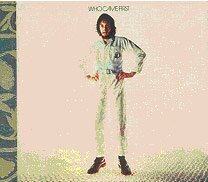


 |
 |
 |
 |
 |
 |
 |
 |
|||
 |
 |
|
 Pete Townsend Who Came First 1972 - Polydor (UK) or Decca (US) 1996 – RHINO CD REISSUE |
|
CD REISSUE BONUS TRACKS:
Truly timeless music needs no back story or explanation. Most music in general can be enjoyed without delving into the Why, When & How that go along with the creation and recording process. Sometimes, however, a listener can benefit greatly from a deeper understanding of the surrounding circumstances involved in an album’s trip from artist to audience. Who Came First is one such album. Travel with me if you will back to 1967. The Beatles had just stopped touring, and also released Sgt. Pepper’s Lonely Hearts Club Band on an unsuspecting world. They started publicly admitting to experimenting with pot and LSD, sang “All You Need Is Love” to 400 million viewers in 24 different countries, during the first international satellite broadcast, and began studying with the Maharishi Mahesh Yogi. San Francisco erupted in the Summer of Love, the Civil Rights Movement expanded as race riots occur in most major cities across the United States, New York declares May 20th as “Flower Power Day,” and there are almost 500,000 U.S. troops in Vietnam, with 60% of American casualties to date occurring that year. Clearly this was a time where the youth of the world was expanding their consciousness, seeking an identity of their own, and examining alternatives to mainstream spirituality, and Pete Townshend was no different. In 1967 Pete Townshend was full of his own solutions to the great questions, including theories of reincarnations and UFOs. After repeated comparisons by friend Mike McInnerney of his ideas with ideas contained in the writings of Indian Avatar Meher Baba, Townshend sought out Baba’s book, The God Man, and began a life guided by the teachings of its author. Meher Baba lived from 1894 to 1969 and spent the last 40 years living in silence. He vowed to speak only once more before leaving the mortal plane, at which time he would speak only one word. The following is reprinted from a column written by Pete Townshend for Rolling Stone magazine, and reprinted many times in many forms. “Meher Baba did not speak at all from July 10th, 1925 until he died in 1969. His silence was of great symbolical meaning. Baba said, ‘You have had enough of my words, now is the time to live by them.’ He also said that the breaking of his silence would occur before he dropped his body, and that the impact of the word he would speak would bring an incredible surge of spirituality to mankind. In later life, Baba explained that the ‘word’ he would speak would not be a word in the ordinary sense, but would be in his own Divine language. (I often wondered previous to hearing this how Baba would manage to utter even a single word after 40 years of silence without a terrible croak emerging, but at last I heard that Baba did in fact speak to himself, so his vocal chords functioned.) The effect of this word on any given individual would depend on that individual's readiness to receive it. The spiritually prepared would get it at full force, receiving a push towards Self-Realization that they couldn't normally achieve even in many incarnations. The unprepared would feel nothing, but all mankind would receive an immense spiritual push.” Townshend continued to be influenced by, and pay tribute to, Meher Baba in his music. Few people know that the Who classic “Bargain” is not about the love of for a woman, but instead is a prayer of thanks written to Meher Baba. “I’d gladly lose me to find you I’d gladly give up all I had To find you I’d suffer anything and be glad” With the subject matter of almost all the songs on Who Came First relating directly to his devotion of Baba, the songs have a quality of openness and ease that invoke a feeling of calm and reveal a sense of peace in Townshend. Even the undeniable rocker “Pure and Easy” is written from a deeply sublime and peaceful place, and speaks of attaining that space as a never ending goal we must constantly strive for. The ability to address deeply personal topics with reflective musical counterpoints shows up again and again in Townshend’s work, but never more so then in the song “Oh! Pavardigar.” This song is actually “The Master’s Prayer” written by Meher Baba and set to music by Townshend. Townshend has the undeniable talent to create songs that do not rely on their lyrical content to make an impact on the listener. “You always were, You always are, and always will be You are everywhere, in everything and beyond In the firmament above and in the deep On all the seven planes and farther on And in all that’s hidden to our eyes and always see” It is easy to see this song’s deep spirituality, and also easy to see how this could be impossible to record successfully. Yet Townshend crafts a musical score that, much like his next works Tommy and Quadrophenia, have structures in common with symphonies, with movements and recurring themes. The album Who Came First is a collection of demo and home recordings where Townshend plays nearly all the instruments on every song. Given the nature of recording technology at the time, these songs have a raw, unpolished sound that allows them to grant the illusion of Townshend becoming even more accessible to the listener, as if he was sitting beside you playing acoustically and singing along with you instead of performing for you. A case in point are two lovely songs, “Sleeping Dog” and “Sheraton Gibson,” the latter being written after sharing an afternoon with Joe Walsh of the Eagles as the Who rolled through Cleveland on tour. The singularity of this album has to be its sense of uniformity as it represents Townshend’s visions and approach to crafting songs and music in general. All the songs on this album have roughly the same tonal and audio quality despite being compiled from many different recording projects, including mobile recording while in hotel rooms. Songs that would later be recorded by the Who and become staples in their live performances sound completely natural next to plaintive and humble songs like “Day of Silence,” which commemorates the ritual that Baba followers practice of remaining silent on the anniversary of Meher Baba’s vow of silence, and “Evolution,” a song chronicling one man’s journey through reincarnation co-authored with fellow Baba devotee and Small Faces guitarist Ronnie Lane. While the overall tonal quality of the album remains strikingly similar, the way that each song arrives at that quality is astonishingly diverse. Solo songs on acoustic guitar, orchestral compositions, conventional guitar/bass/drums structure, solo piano pieces, mandolin, banjo, electric piano, hand claps, wood blocks, and harmonica all come to play throughout different tracks. Townshend’s ability to visualize complete songs and reproduce those ideas on tape gives us a unique look as he enters the most conceptual period of his career. The added tracks on the CD reissue makes it the obvious choice over the original vinyl, but the lengthy and detailed packaging of the deluxe hardcover book edition well worth the extra effort when seeking this album out on-line or better yet at your local record dealer. For information on Pete Townshend please consult these resources: www.petetownshend.co.uk www.eelpie.com For information on Who Came First please consult these resources: Amazon.com: Used and New: Who Came First For information on Meher Baba, please consult these resources: http://www.mehercenter.org/ http://www.meherbaba.com/ http://www.avatarmeherbaba.org/ http://www.jaibaba.com/ http://www.eelpie.com/shop/index.cfm?p=meherbaba 
|
|
 |
 |